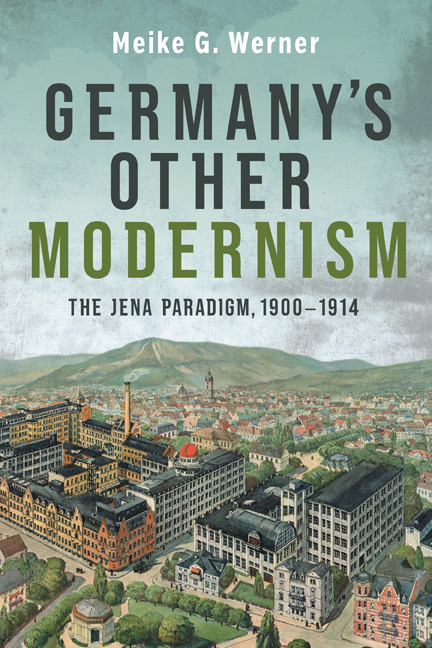4 - Dancing on the Volcano: “Young Jena”
Published online by Cambridge University Press: 11 January 2024
Summary
The young person has become so homeless and doubts all customs and concepts.
—Friederich NietzscheKant's starry heavens now glitter only in the dark night of pure cognition and no longer shed any light on the paths trodden by lonely wanderers—and in this New World to be human means: being lonely.
—Georg LukácsWITH US THE NEW AGE IS AT HAND”: Youth's awareness of having time on its side came to the German provinces with only slight delay. At the beginning of 1906, ten years after the Steglitz high-school students had begun tramping around Berlin's Grunewald under the Wandervogel banner, Ferdinand Vetter of Dresden founded a new branch of the Alt-Wandervogel Jena. Its motto was “Through the Wandervogel to abstinence.” Vetter was then teaching at Jena's High School for Girls in order to finance his science studies at the university. His driving ambition, though, was to reform the modern way of life.
Inspired by his work with schoolgirls and by the spirit of togetherness on their group hikes, Vetter called for a general prohibition of alcohol during their outings. He presented this demand in 1907 at the federal meeting of Alt-Wandervogel in Berlin. He also called for the inclusion of girls and non-elite Volksschüler (elementary school pupils). However, the conservative Berlin leadership voted down these democratizing proposals. The Jena contingent then demonstratively walked out of the meeting. Together with the students of Marburg and the like-minded Wilhelm Ehrhardt, Vetter founded the Wandervogel, deutscher Bund für Jugendwandern (German Association for Youth Rambers, DB), which included girls as members, banned alcohol, and was open to pupils of all social classes. Following Jena's lead, many other such groups were founded. Within just a few years the DB became the second largest Wandervogel company. The thriving Jena branch enjoyed much friendly support for their guitar-accompanied outings, not only from parents and schoolteachers but also from circles within the university. The list of 116 names included Gottlob Frege, Ernst Haeckel, and Wilhelm Rein. Diederichs joined the Wandervogel in 1910.
From the outset, university students had served as go-betweens linking the younger generation of school-age children with the older generation of parents and teachers.
- Type
- Chapter
- Information
- Germany's Other ModernismThe Jena Paradigm, 1900-1914, pp. 205 - 273Publisher: Boydell & BrewerPrint publication year: 2023

